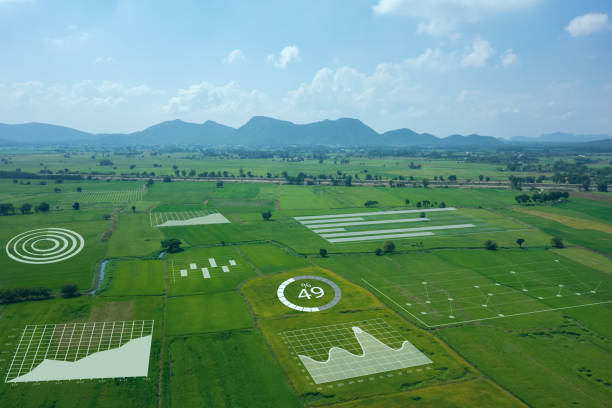The way American farmers interact with their land is changing fast. With rising labor costs, climate unpredictability, and growing demand for sustainable practices, precision agriculture is more than just a trend—it’s a revolution. And it’s transforming the way we buy, use, and think about farm equipment. In 2025, machines aren’t just getting bigger; they’re getting smarter.
What Is Precision Agriculture?
Precision agriculture refers to the use of advanced technologies—GPS guidance, sensors, IoT, AI, and data analytics—to monitor and optimize agricultural operations. From tractors that auto-steer with sub-inch accuracy to combines that adjust settings based on crop moisture, the modern farm is a high-tech ecosystem.
Equipment That’s Leading the Charge
1. Auto-Guided Tractors (e.g., John Deere 8R Series with StarFire GPS)
Tractors with RTK GPS steering save time, reduce overlaps, and improve fuel efficiency. Farmers now report up to 15% savings in inputs like fuel, seeds, and chemicals.
2. Smart Planters
Precision planters from brands like Kinze or Case IH can adjust seed depth and population in real-time based on field variability. The result? Higher yields with fewer seeds.
3. Drones & Remote Sensing
Crop health can now be monitored via drones equipped with multispectral cameras. They detect pests, nutrient deficiencies, and irrigation issues before the naked eye can.
4. Variable Rate Technology (VRT)
Sprayers and spreaders equipped with VRT apply the exact amount of inputs needed, reducing waste and runoff.
Benefits for the Modern Farmer
-
Lower Costs: Less waste, better efficiency
-
Higher Yields: Optimized planting and input use
-
Environmental Sustainability: Less chemical runoff
-
Data-Driven Decisions: Better season-to-season planning
Challenges and Considerations
While promising, precision ag comes with upfront costs and a learning curve. Training, connectivity in rural areas, and compatibility between systems remain concerns.
Final Thoughts
Precision agriculture is no longer optional for farmers who want to stay competitive. Whether you’re managing 100 or 10,000 acres, smart equipment is becoming essential. As technology prices drop and integrations improve, 2025 may be the tipping point where digital tools become the standard on every farm.

